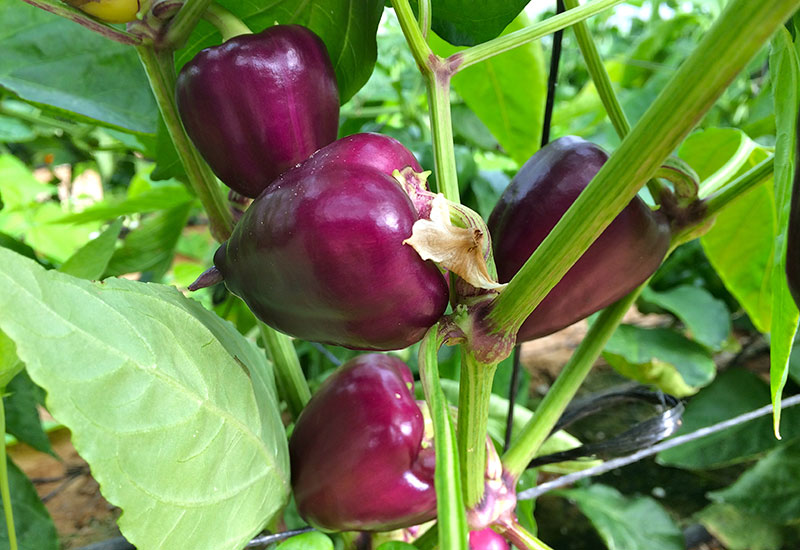Can you tell us what challenges you face when it comes to farming in this region, and how these are overcome?
The UAE is perceived as a hostile farming environment due to a lack of soil and water and sometimes-extreme temperatures. We’ve researched extensively and formulated our own techniques to adapt to these challenges.
Firstly we’re dealing with sand instead of soil. Good soil consists of particles of sand, clay and silt. Our sandy soils here have a poor structure and are too coarse to form aggregates. The only way to combat this is to add organic matter to the sweet sand in the form of compost, manure and natural minerals.

| Advertisement |
This is why building our own soil is such an important part of our business. We also invest a lot of time in saving our seeds, rather than growing hybrids shipped in from Holland or the US, so we can adapt them to our local growing conditions.
This, with time, increases our output, enhances the flavour of our produce and helps us to achieve our independence from seed suppliers. The benefits to consumers are better quality and lower prices. Growing produce from our own seeds also reduces water consumption. Water conservation has long been an important topic in the UAE and is central to our operation. All the sweet water used for our plants comes from our own wells.
We only use drip irrigation and we’ve developed several different techniques that help to reduce water consumption such as intercropping and the use of mulches.
As there are very few current publications on desert farming, we feel it’s important to record, analyse and evaluate all our findings. We take general organic farming techniques and adapt them to local conditions. We use the knowledge we gain from running trials to increase our range, develop new techniques, and grow more efficiently and cost effectively.
Do you work with the F&B industry or is your business largely retail?
Right now it’s about 50/50. We have a following of customers visiting our farm shop in Al Barsha South or ordering home delivery online via our website. We also work with more than 10 wholesale clients and are in talks with four well-known Dubai-based restaurants.
We finished our HACCP certification last August and have started to supply to five-star hotels. Our largest hotel client right now is the Four Seasons Hotel Dubai at Jumeirah Beach. Other businesses we supply include N_K_D Pizza, Detox Delight, Essentially, Comptoir 102, The Cycle Bistro, BeStro and Galeries Lafayette Gourmet.
What kind of support do you require from the F&B industry?
There are many ways the industry can support genuine organic growers in the UAE. For example, a juicing company needs kale with lush, moisture-dense leaves that produce high yields and a nice flavour when juiced, so we grow a kale variety that meets these needs. On the other hand, kale used in salads or as kale chips should have different qualities.
In return, we ask our clients to predict the quantities they will need so that we can plan ahead. To minimise waste we only grow what we’ve budgeted for, so short notice requests can’t always be accommodated.
We also need our clients to share our understanding of growing seasons. In Europe, for instance, strawberries are associated with summer menus but here the strawberry season is between December and April. When yield of a particular vegetable is unexpectedly high we can offer it at a discounted rate. If a restaurant’s menu is flexible with daily specials, these extra quantities can be absorbed. This is advantageous for both the restaurant and the grower.
Lastly, but no less important, is the need for chefs to support the introduction of unusual heirloom varieties that do well in the UAE climate. Sometimes people shy away from trying something new. One example is the wonderful lemon cucumbers we’ve been growing.
At last year's Dubai Food Carnival, John Torode featured them in one of his demonstrations. This helped raise awareness and increase the popularity of this unusual old-fashioned variety amongst the public.









 Search our database of more than 2,700 industry companies
Search our database of more than 2,700 industry companies









